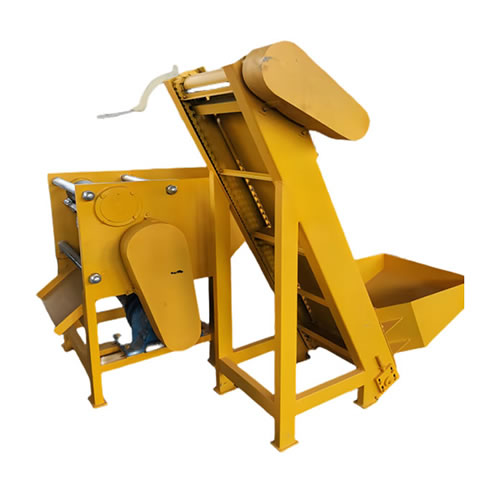Quality Reliable Outstanding Henan Made Lithium Battery Discharge Equipment Enhances Azores Automotive Lithium Battery Recycling Industry Competitiveness
The Azores, an archipelago in the North Atlantic, is experiencing a surge in demand for industrial products. This growth is driven by emerging markets seeking new energy sources, such as geothermal energy from the islands' volcanic activity. Additionally, the region's unique natural resources and strategic location make it an attractive hub for sustainable industries like eco-friendly tourism and renewable energy production. These factors are fueling the islands' economic expansion and industrial development.

The industrial chain of automobile lithium battery recycling includes the following links:
1. **Battery Collection and Transportation**:
- This is the initial step in the recycling process. Batteries are collected from various sources such as electric vehicles, energy storage systems, and consumer electronics.
- These batteries are then transported to processing centers through professional logistics companies. The collection and transportation process requires a well-established network and efficient logistics system to ensure the safe and efficient handling of the batteries.
2. **Battery Disassembly and Inspection**:
- Once at the processing center, the batteries are disassembled to separate the valuable materials inside. This step involves carefully taking apart the battery packs to access the individual cells.
- Each cell is then inspected to determine its condition and potential for reuse or recycling. This helps in identifying which batteries can be repurposed and which need to be recycled for their materials.
3. **Battery Recycling and Repurposing**:
- There are two main methods of battery recycling: regeneration and repurposing.
- **Regeneration**: This involves using physical, chemical, and biological methods to extract valuable metals such as nickel, cobalt, lithium, and manganese from the batteries. These metals are then processed into metal compounds or raw materials for new batteries.
- **Repurposing**: This method involves disassembling the batteries, testing and sorting the cells, and reassembling them into new battery packs for use in different applications. This extends the life of the batteries and reduces waste.
4. **Material Extraction and Processing**:
- After the batteries are recycled, the extracted materials are further processed to remove impurities and convert them into a form suitable for manufacturing new batteries. This may involve additional refining and purification steps.
5. **Manufacturing of New Batteries**:
- The processed materials are then used to manufacture new lithium batteries. This closes the loop in the recycling process, creating a sustainable supply chain for battery production.
In summary, the industrial chain of automobile lithium battery recycling encompasses collection and transportation, disassembly and inspection, recycling and repurposing, material extraction and processing, and the manufacturing of new batteries. This comprehensive process not only helps in conserving valuable resources but also reduces environmental pollution, contributing to a more sustainable future.

# From Laboratory to Market: The Technology Transformation and Application of Lithium Battery Discharge Equipment
Lithium battery discharge equipment plays a crucial role in modern energy storage systems. Its technology transformation from laboratory to market is a significant process.
In the laboratory, researchers focus on improving the discharge efficiency and safety of the equipment. They conduct numerous experiments to explore the optimal design and materials. For example, advanced control algorithms are developed to ensure stable and accurate discharge, while high-quality components are selected to enhance the overall performance.
When it comes to the market application, the discharge equipment has a wide range of uses. It can be used in electric vehicles to test the battery performance, ensuring the reliability and longevity of the batteries. In the energy storage industry, it helps optimize the operation of large-scale battery storage systems, improving the utilization of renewable energy. Moreover, with continuous technological advancements and cost reduction, the equipment becomes more accessible, promoting its widespread adoption in various fields. The transformation from laboratory to market not only demonstrates the practical value of the technology but also drives the development of related industries.
Overall the Azores as an important industrial base for China has a large demand for the recycling and reuse of automotive lithium batteries and accordingly there is also a significant demand for products such as lithium battery discharge equipment Lithium battery discharge equipment as a technically mature and environmentally friendly water treatment agent has broad application prospects in the recycling and reuse of automotive lithium batteries in the Azores and is expected to make a greater contribution to the ecological environment protection of automotive lithium battery recycling and reuse Maoxin Machinery wishes customers of lithium battery discharge equipment in the Azores a prosperous new year with thriving business for our new and old customers in the recycling and reuse of automotive lithium batteries